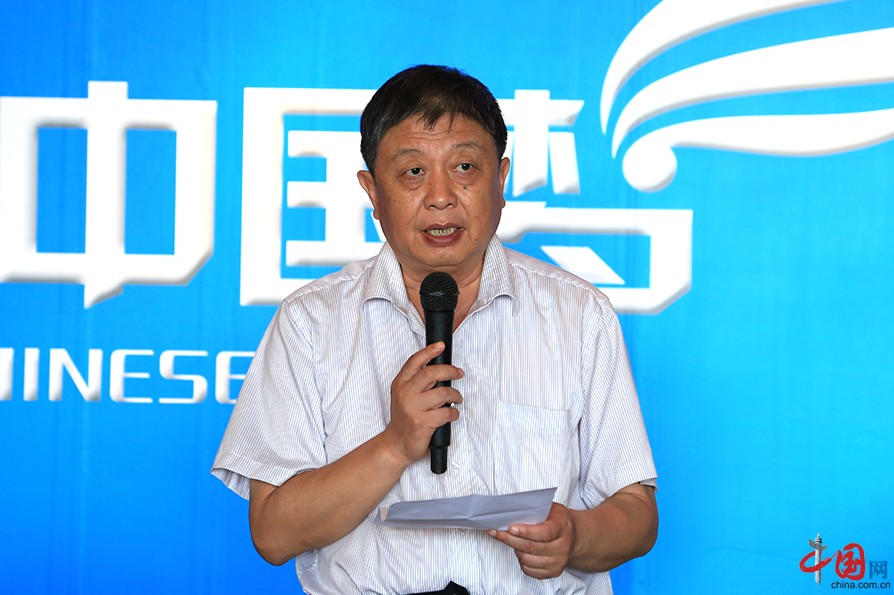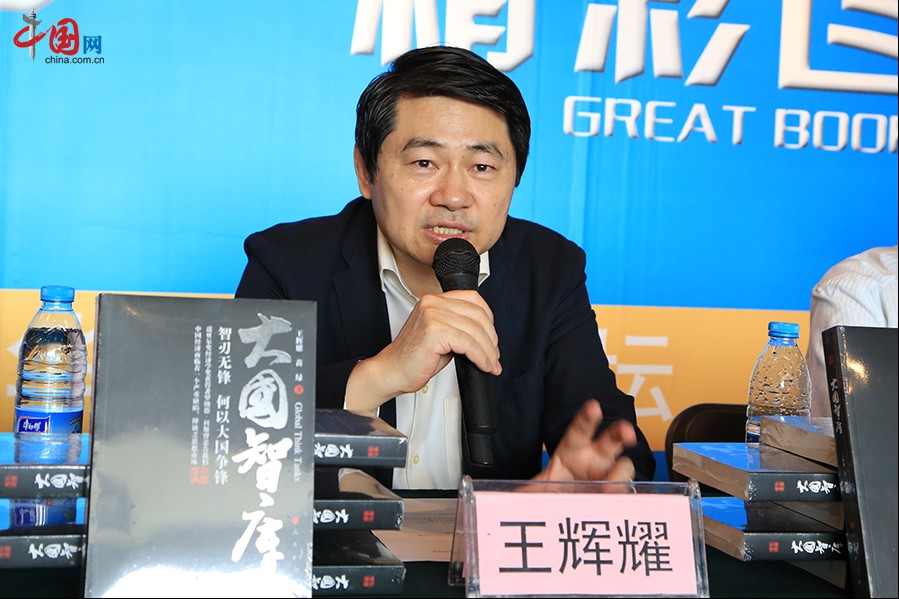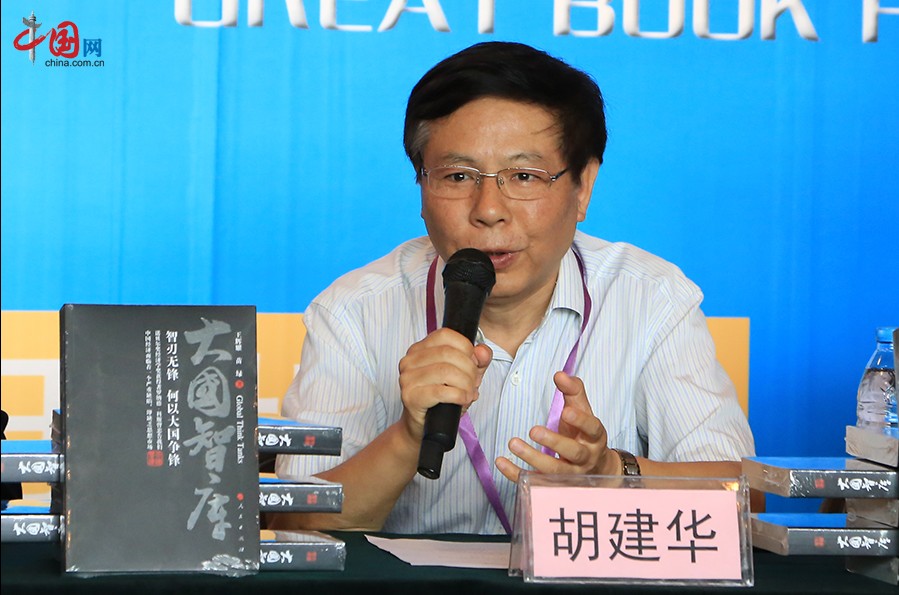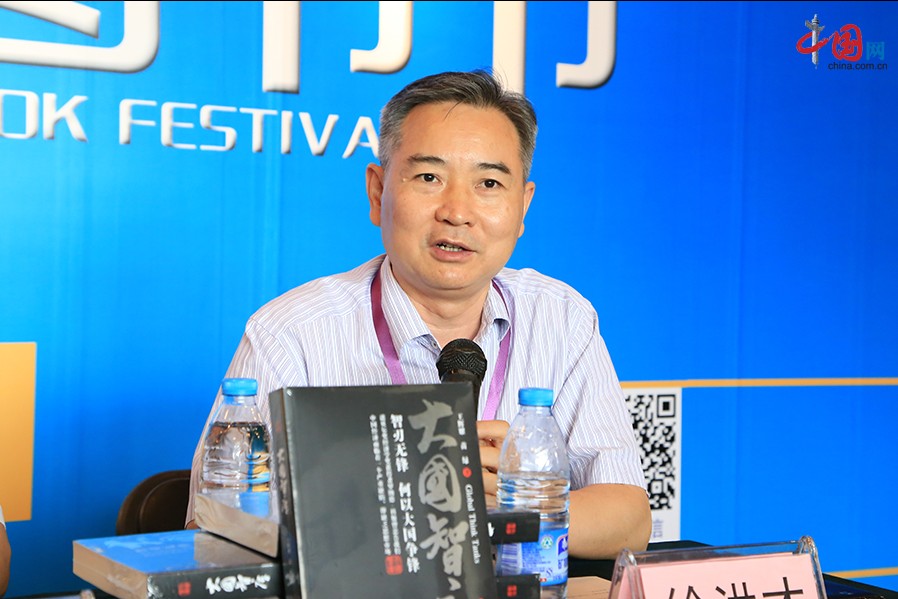CCG’s New Book “Global Think Tank” Starred at 12th Beijing International Book Festival
June 06 , 2019First Chinese Review of Major Global Think Tanks;

Sept. 3, 2014 (Beijing) -The Center for China and Globalization released a new book at the opening day of the 12th Beijing International Book Festival. The book, which provides a detailed review of major global think tanks and an in-depth analysis of the future of Chinese think tanks, is appraised for “filing the blank of the study in this area.”
The book, titled the “Global Think Tanks”, is a product of six years of field and document research by Dr. Wang Huiyao, CCG’s founder and President, and his deputy, Dr. Miao Lv. The People’s Publishing House published the first edition of 10,000 copies.

A majority of global think tanks reviewed in the book are from the United States, such as RAND Corporation, Brookings Institute, Carnegie Endowment for International Peace, and Council on Foreign Relations. The Center for European Policy Studies, Center for Strategic and International Studies (Indonesia), and other selective think tanks in Europe and Asia Pacific are also included. The book sheds light on their history, background, area of expertise, structure, and influence. It also, in particular, highlights each think tank’s uniqueness and strength on China studies.
“This book is one of the few that examines global top think tanks from an international perspective and an analytical approach,” Li Cheng, Director of John L.Thornton China Center of the Brookings Institution, said in his recommendations for the book.
The book recognizes the imperative role think tanks play in developing intellectual power, shaping public policies, guiding public opinion, and improving a country’s international competitiveness and global leadership. Comparing with American and European think tanks, the authors identify the existing weakness and great potentials of Asia think tanks, especially those in China.

Mr. Ren Chao, Vice President of the People’s Publishing House, said that the “Global Think Tank” is the first book released at such a high-profiled annual book festival, as the official publishing company implements the central government’s policy to build the “new model of think tanks with Chinese characteristics” to strengthen China’s soft power. “This book offers abundant first-hand information for those who are interested in the think tanks in China and abroad, and will make a significant contribution to the development of China’s think tanks and political consultation mechanism,” he said.

Wang Huiyao, President of CCG
“In this book, we offer a comprehensive review of more than 30 top think tanks across the world, combined with our first-hand observational experience,” Dr. Wang told the book release ceremony. “Through a comparative study, we also analyze the trends, challenges, and opportunities in China’s think tank development, and propose operable solutions.”

Hu Jianhua, Former Associate Counsel of CPC’s Organization Department
Former Associate Counsel of CPC’s Organization Department Mr. Hu Jianhua congratulated on the release of the book, saying it is a significant event for the development of China’s think tanksand will bring positive impact on China’s economic transformation and talent cultivation.

Xu Hongcai, Director of China Center for International Economic Exchanges
Mr. Xu Hongcai, the Director of China Center for International Economic Exchanges-the largest government-run think tank in China, also spoke highly of the book for its thorough review of global thinktanks and constructive recommendations for policymakers.
Based on extensive research and analysis, the book proposes several policy solutions to unleash the great potential of China’s think tanks, including allowing private think tanks to make a more significant contribution.
Entering the “Era of Think Tanks”
Dr. Wang pointed out that the Chinese think tanks already broke out of the cocoons and entered a period of accelerated development, as the Chinese central government heightens the importance attached to this issue.
At the Third Plenum of CPC’s 18th Central Committee and on several other occasions since last year, Chinese President Xi Jinping reaffirmed the decision to “build the think tanks with Chinese characteristics” as part of policymaking consultation system. He also acknowledged that think tanks are an imperative component of a country’s soft power, so China needs to design and implement a national strategy to explore the organizational and managerial options to cultivate the “new model of think tanks with Chinese uniqueness.”
Against such a backdrop, Dr. Wang and Dr. Miao insight fully pointed out in the book that globalization has moved from the “era of economy” to a new “era of think tanks”- during which think tanks can be an “invisible tool”the great powers use for competition and an important signal of a country’s soft power. Tracing the history back to 500 years ago, almost every great power in the West emerged along with the thriving of its think tanks. As of today, the United States has remained a leading role in global think tank development, which is a key contributor to its world leadership and influence.
Nowadays, international competition does not only exist in the area of “hard power”-economy and technology, but also in the area of “soft power”composed of thoughts, ideas, and culture.The book believes that think tanks can be the origin of innovative thoughts and wisdom, and therefore become the forefront of soft power competition.
Another reason to build highly competitive think tanks is that every state government is facing more complex challenges on domestic and diplomatic fronts that are already beyond traditional political understanding, so policymakers are compelled to seek advice from independent think tanks that are outside the governing system to supplement their policy considerations.
Time for China’s Think Tank Emergence
For the reasons above, Dr. Wang and Dr. Miao believe the timing has arrived for China’s think tanks to surge as a symbol of the country’s soft power. By far, the rise of China has been mainly manifested in growing GDP, advanced technology, and stronger military power. But, China’s soft power still has a large room to improve to match its hard power. “No great state power can be accomplished without great think tanks,” says the book.
In the recent years, China’s think tanks have stepped into international spotlight. According to the annual report about global think tanks by the University of Pennsylvania, since 2009, China has claimed the No. 2 on the list of the countries with the largest number of think tanks for five consecutive years. Among the most powerful think tanks in the world, six are from China. However, more needs to be done to improve the credibility of China’s think tanks.
“The credibility of a think tank is originated from its nonprofit nature, independent status, research objectivity,” says the book. In China, many government-run think tanks have trouble to maintain or prove the objectivityof their research and analysis, while private think tanks, albeit nonprofit in nature, are often over-commercialized and incapable of producing high-quality research outputs.
Moving on, the two authors believe it is a top priority to address the credibility issue, and also enhance think tanks’ innovation, communications, and academic research capacities. To achieve the goal, talents are the most essential resource of think tanks.It is also critical for think tanks to leverage media platform, especially new media, to popularize their thoughts and research outputs among target audience.
Encouraging China’s Private-run Think Tanks
A key policy recommendation the book provides is to make room for private think tanks. The government,as the leading and guiding role in think tank development, needs to treat the think tanks of all forms of ownership equally, and enable an open and fair environment for private think tanks to compete with the public ones for research resources and programs in the thought marketplace.
As Dr. Wang and Dr. Miao noted, private-run think tanks have advantages in directly utilizing social resources to research the policies to promote public good, and generating positive outcomes to accelerate social development. Private-run think tanks can also draw in more outstanding talents from society with innovation, ambition, and commitment to social good, such as senior scholars, retired politicians, and business executives. In addition, private-run think tanks can mobilize more players in society to participate in the evaluation and assessment of think tanks and eventually become an internal driving force.
“Just like private enterprises that are already sharing the leading role with state-own enterprises in China’s economy, private-run think tanks should also be allowed to have a stronger foothold in China’s thought marketplace,” said Dr. Wang.
“China has entered a ‘peak season’ of public policy making’ to cope with the complex domestic and international situation, and needs more than ever to research for constructive and innovation policy options, so it is time to encourage and enable a bigger role of private think tanks,” he added.







